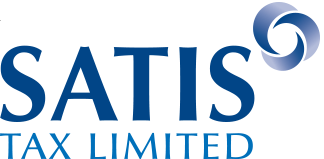The UK housing market despite a recent cooling can create unexpected tax liabilities for US nationals should they decide to sell their UK family home. But with early advice, those tax liabilities can be minimised.
UK house prices are famously high. Over the last decade, house prices in London, according to the Office for National Statistics, have increased by as much as 120%. Outside of London, the picture is not that different with increases of 90% or more.

For US nationals deciding to sell their home that can mean a substantial gain, and the US tax authorities will want its share.
Unlike the UK where the tax authorities do not tax gains made on the family home, known as the principal private residence or PPR, the US tax authorities irrespective of where a US national lives will expect gains to be declared and tax paid.
Capital Gains Tax
US nationals selling their principal private residence can claim a capital gain exclusion of US$250,000 for an individual and US£500,000 when married. It does, however, come with conditions.
For a home to qualify as the principal private residence, the US tax authorities will need evidence that you have lived in the home for two of the last five years. Helpfully, that period does not need to be consecutive, and there are further exemptions if work requires, for example, regular travel.
US tax authorities will require notification of any gain, with gains over the exclusions generally taxed at 15-20%. Any gain on the sale of second homes, for example, UK rental property, will be taxed at the 15-20% rate.
A word of caution to US nationals married to a UK national: a UK national may qualify for the US$250,000 exemption, but to do may result in their worldwide income and assets being drawn into the US tax net, and that is rarely desirable.
In addition to capital gains tax, US nationals need also consider foreign mortgage gain and Net Investment Income Tax.
Foreign mortgage gain
On selling a UK home, US nationals with a UK mortgage are required to convert the transaction into US dollars. Fluctuating currency rates may trigger a gain or loss when the mortgage is closed and that is considered a trade by the US tax authorities. Mortgage income gain is typically taxed at higher income tax rates. However, and frustratingly, any loss is not deductible.
Net Investment Income Tax
Gains on the sale of a home over the exclusions will also attract an additional 3.8% tax called the Net Investment Income Tax. The tax went into effect on January 1, 2013, nicknamed the Obamacare tax, and applies where an individual’s income exceeds US$200,000 (or $250,000 for a married filing jointly status).
Tax planning options
The tax landscape for US nationals is complex and there are entirely legitimate tax planning options open that can reduce tax exposure.
For example, the way a property is owned by a US national and their partner – a move from joint tenants to tenants in common – can make a significant difference to the tax due.
US nationals living and working in the UK and looking to sell the family home should take early advice to ensure they do not pay any more tax than is needed.
